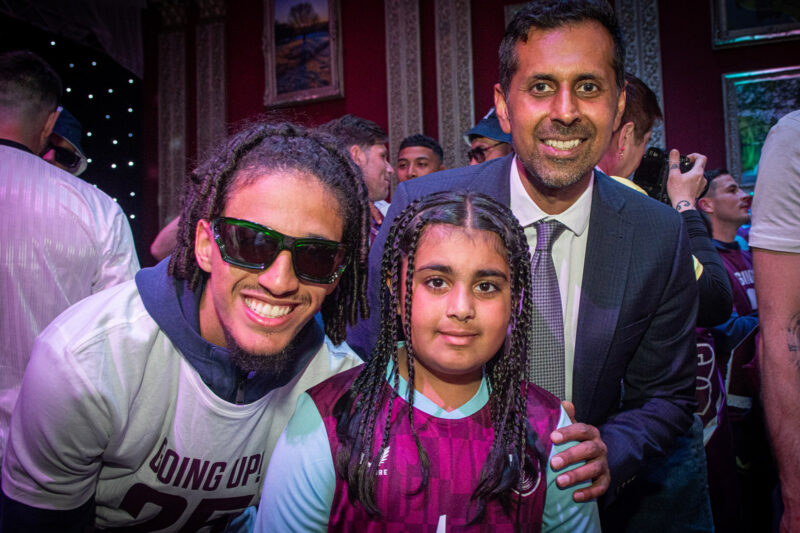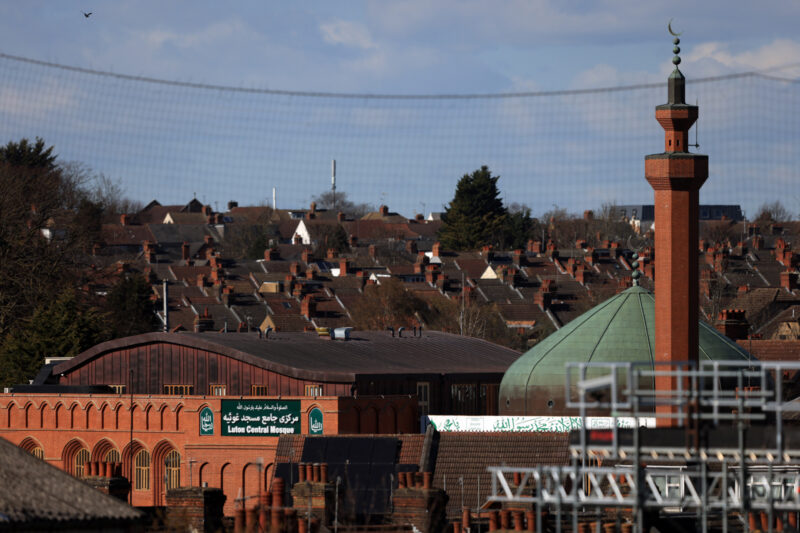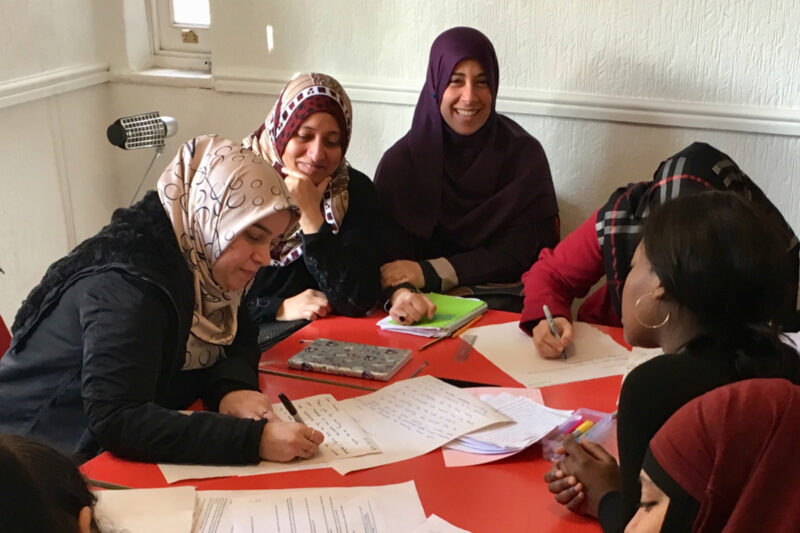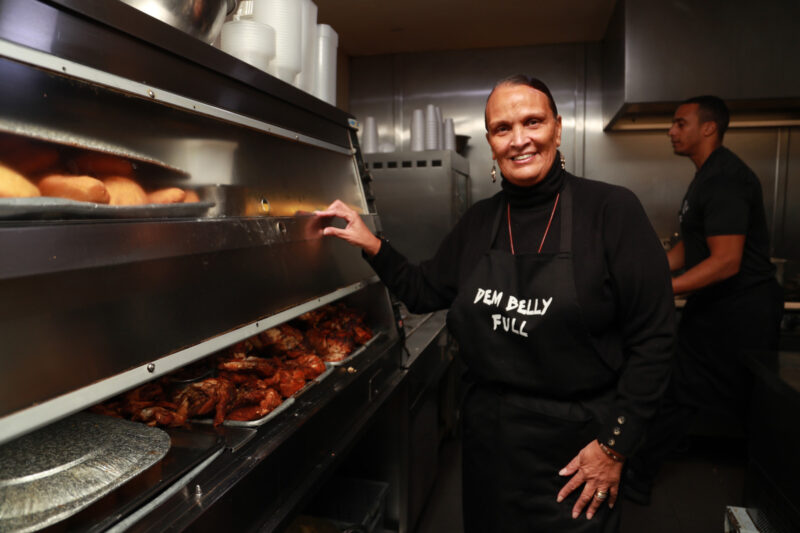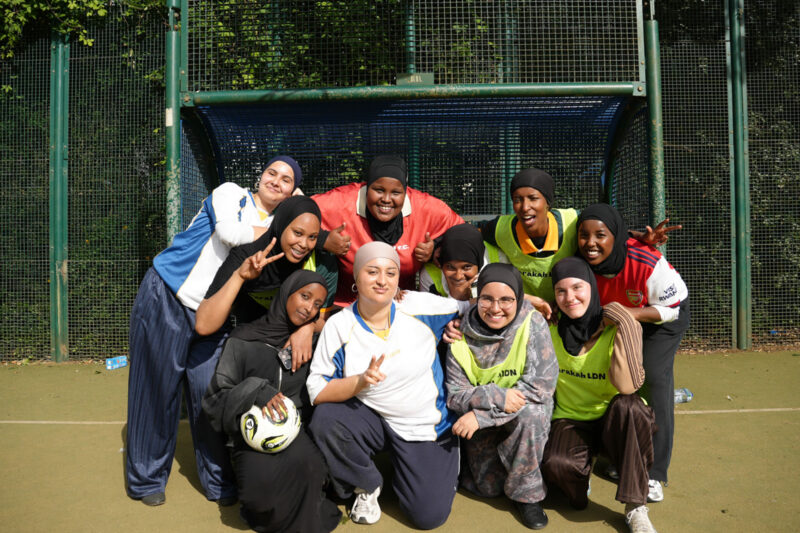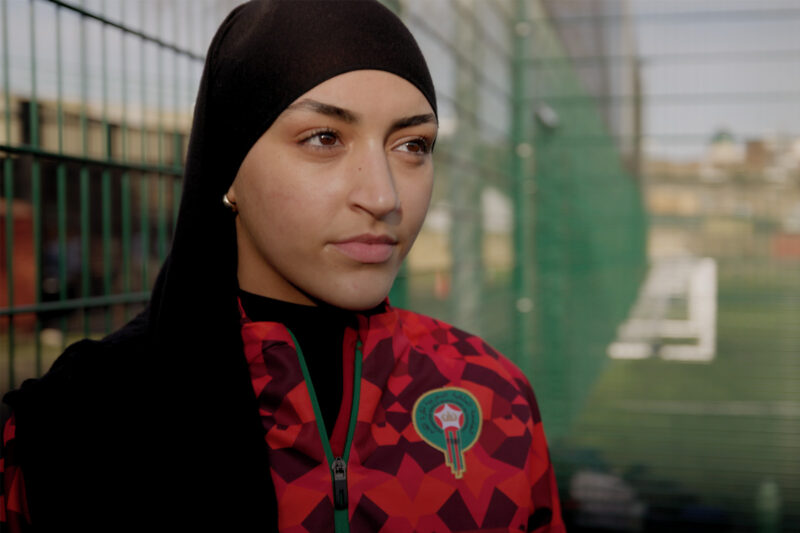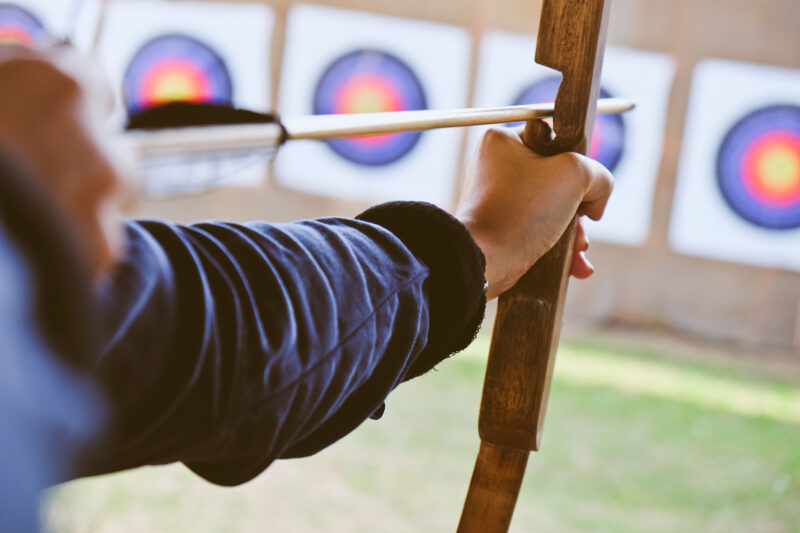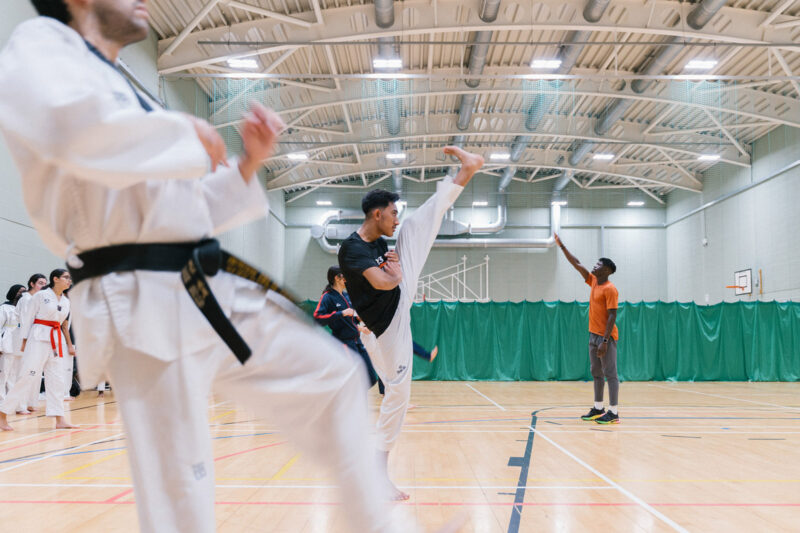Multiculturalism isn’t Luton’s problem
The hometown I know is a place where people pull together in times of need — and on the football terraces
–
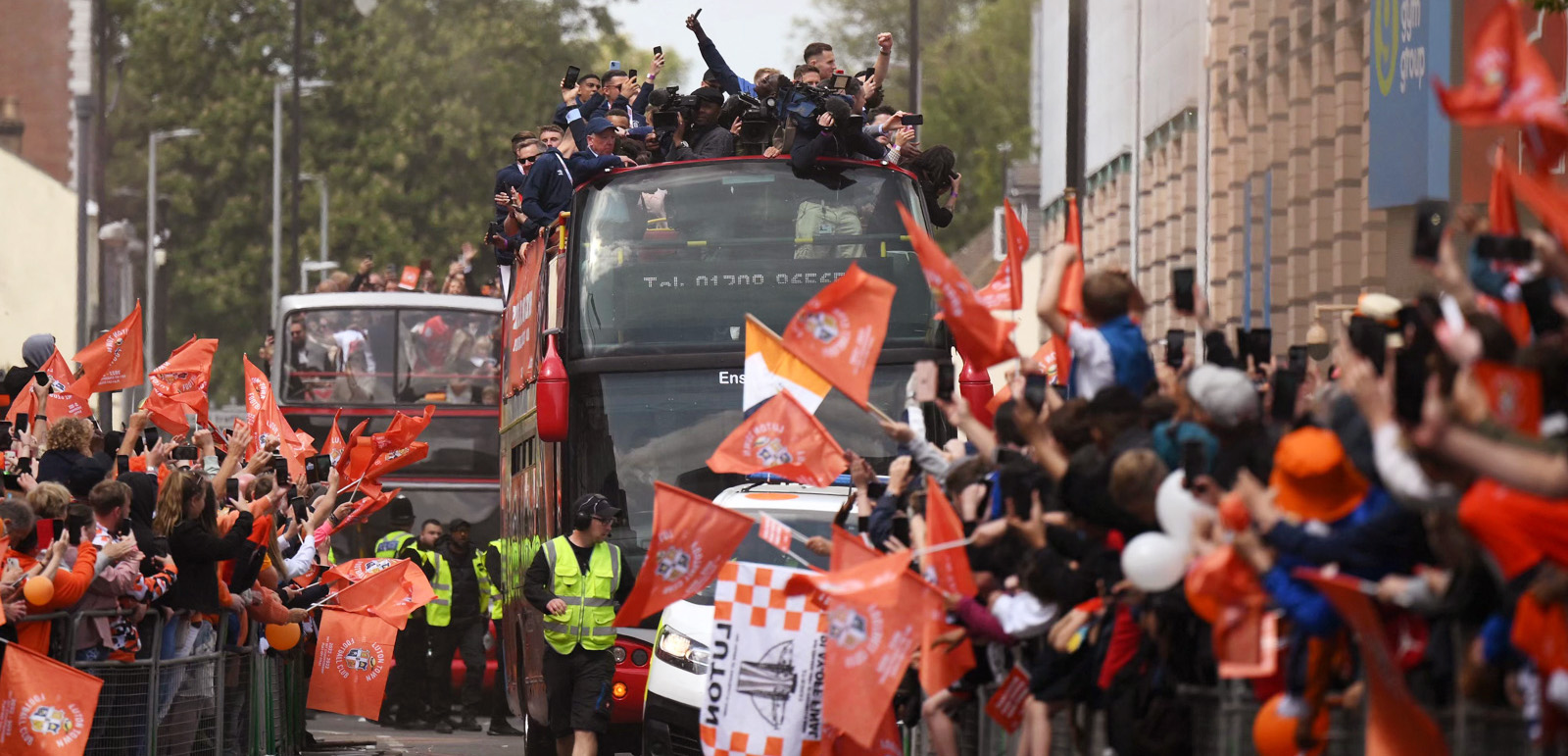
On a chilly November afternoon, scores of football fans were walking through Bury Park, on the way to Luton Town’s home ground. Neither glamorous, modern nor particularly big, Kenilworth Road remains deeply connected to football’s working-class roots. Nowhere is that more visible than the Oak Road end, where away fans walk up stairs overlooking the backyards of neighbouring Edwardian terraces to reach the stand.
Once home to local firms including the water meter manufacturer George Kent and the Skefko Ball Bearing Company, this district of Luton has hosted many migrant communities: Irish, Scots, eastern European Jews and people from the Caribbean. Today, it is a hub of South Asian life, home to sari shops, greengrocers, halal butchers and nearly a dozen mosques.
In late May 2023, the neighbourhood was a sea of orange as thousands gathered to celebrate Luton’s promotion to the Premier League. The Hatters — named for the town’s historic millinery industry — had completed a remarkable recovery, working their way up from the fifth-tier Conference League to the top flight of English football. In the crowd, members of the local South Asian community performed bhangra dances to dhol drums.
Since promotion, the club has struggled to hold its own, sitting 18th in the league. Still, the images of a diverse community united in victory told a seldom-heard story about a place more commonly portrayed as a deeply divided home to rival factions of Islamist fanatics and right-wing extremists.
In the late 1990s al-Muhajiroun, the proscribed organisation led by Anjem Choudary, planted roots in Luton. In 2009, the far-right English Defence League (EDL) was launched by local anti-Islam campaigner Stephen Yaxley-Lennon. More recently, another far-right group, Britain First, has made headlines by describing the town as a no-go zone for non-Muslims.
But the Luton I know is strikingly different. As soon as I got through the turnstile at Kenilworth Road, I ran into a friend from primary school, Kibriya Rahim. As a senior matchday steward, he is one of many local South Asians employed at the ground, and described his involvement with the club as a “life changing experience”.
When we finished catching up, I made my way to stand B and took my seat next to Clive, a pensioner who has been attending games for more than 70 years. On paper, the game looked set to go the way of visitors Crystal Palace but Clive was hopeful, all the same. “I reckon 2-1 to Luton Town,” he said.
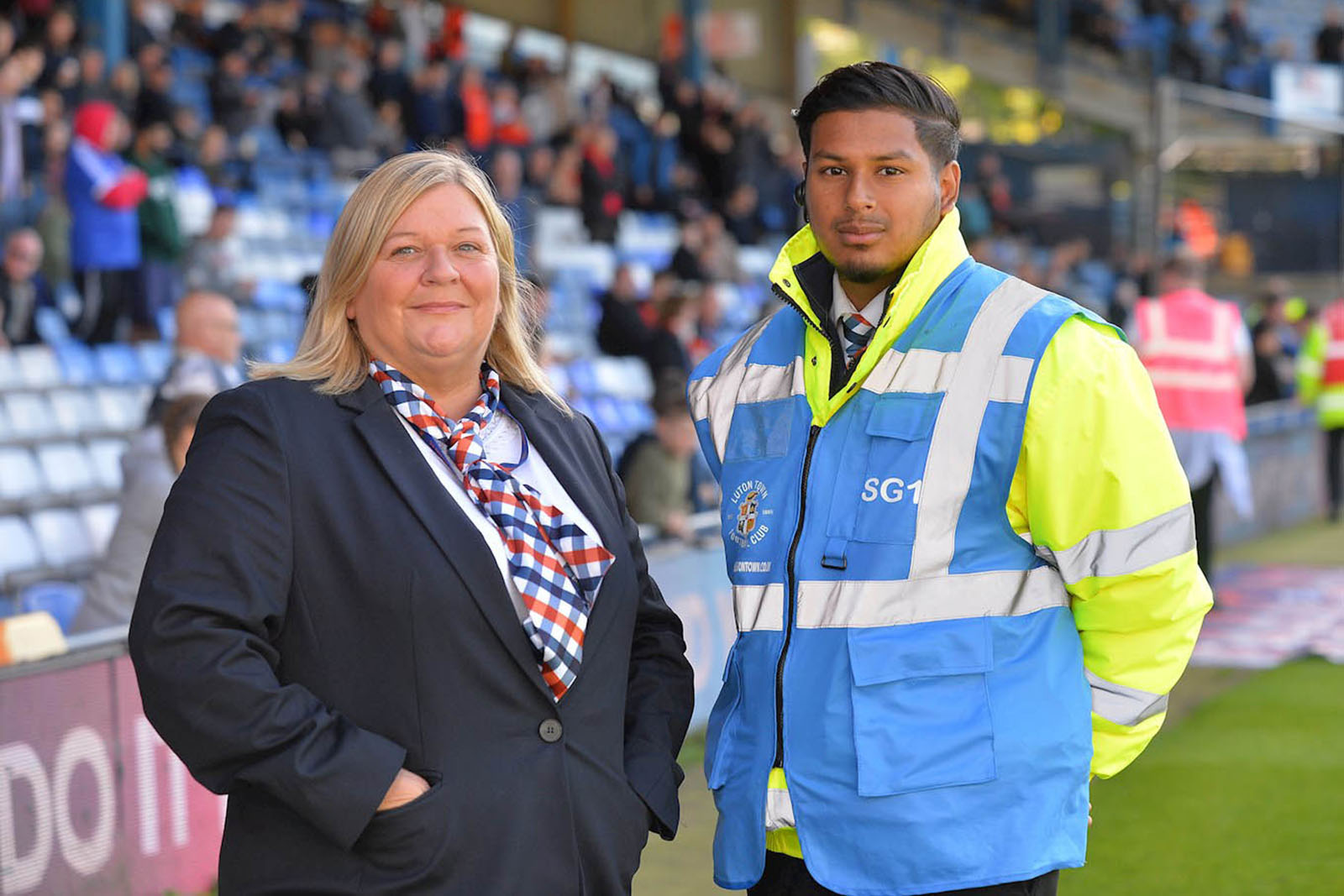
Back in the 1970s, my dad lived around the corner from Kenilworth Road, but never set foot inside the ground. Like most local South Asian kids, he tried to stay indoors during home games and recalled wearing an oversized parka to hide his face from racist hooligans. “The away fans caused the most trouble,” he said. “They’d break shop windows. Local people got beaten up and chased.” When I told him that some people think that Bury Park is now off limits to white people, he let out an ironic laugh.
The only concerns I had on my visit were about the Hatters’ performance in the second half. At the break the home team was lucky to be level at 0-0, thanks to an impressive double-save by goalkeeper Thomas Kaminski.
Throughout the match, Mostaque Koyes, Luton Town’s community ambassador for the past five years, sat near the dugout, behind manager Rob Edwards. A British Bangladeshi, Koyes, 41, grew up nearby. His relationship with the club began to grow 15 years ago, when he landed the job of delivering match commentary for the community radio station Diverse FM.
Koyes and his team are well aware that Luton, and Bury Park in particular, are areas of higher than average deprivation. Alongside initiatives such as school tours of the ground and letting young people have a kickabout on the pitch at the end of the season, Luton Town has a longstanding policy of handing out free tickets to local community groups. Koyes said that his phone is “constantly buzzing” with people asking to get into matches.
A printer by trade, Koyes is one of many entrepreneurs who have benefited from the club’s efforts to forge links with local businesses. His company Bartham Press produces matchday programmes and reports. The club’s commitment to creating close community connections and ensuring that Kenilworth Road offers a safe and inclusive environment for all reflects his own experience.
“When we were in the Conference League, I sat in the dugouts behind former manager John Still,” he said. “He’d shake my hand after every game. I got treated like I was one of their own.”’
Koyes has also helped to nurture relationships between Luton Town and local mosques. The nearby Madinah Mosque uses the club car park for Friday prayers and during Ramadan. Over the years, that favour has been returned in numerous ways.
Back in 2020, when the club’s former manager Mick Harford was diagnosed with prostate cancer, worshippers arranged a fundraiser for Prostate Cancer UK. When the Hatters were promoted to League One in 2018, they handed out 10,000 celebratory Ferrero Rocher chocolates.
In 2023, the club invited local worshippers into the Eric Morecambe Lounge to break their Ramadan fasts and share a meal with club staff. In September, the day Luton Town hosted Wolves at Kenilworth Road, the mosque held an open day, inviting both home and away fans to visit. Volunteers distributed water bottles and cookies, organised a football quiz and promoted fundraising efforts by the local Christian charity Noah’s to support local unhoused people.
“It’s about being good neighbours,” said Koyes. “Luton gets a bad name. It’s got poverty. But it’s also got aspirations.”
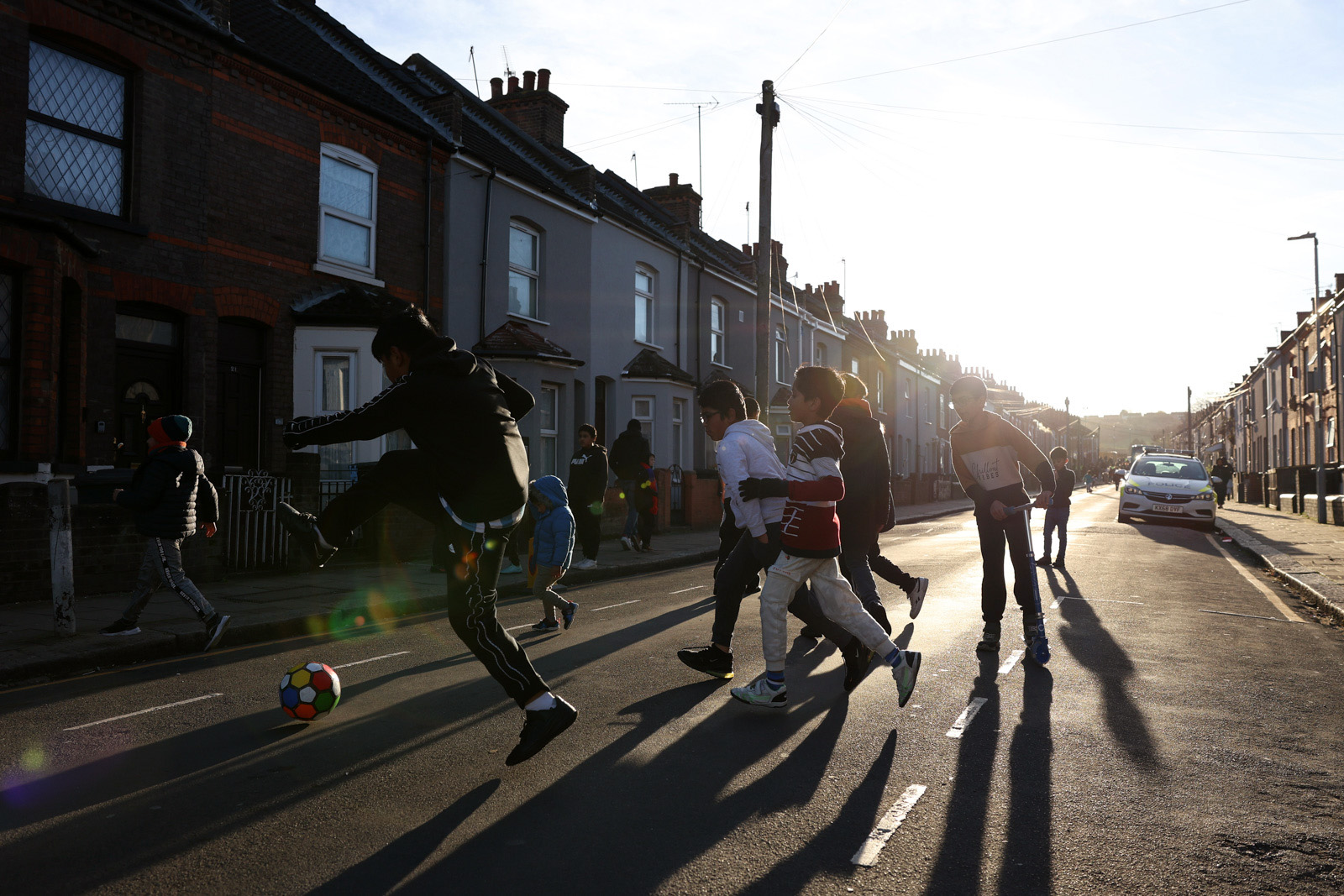
As a Muslim, Koyes is the first port of call for questions around Ramadan and religious festivals. He has brought in a training company to provide insights into Islam and coordinated the club’s support of Islamophobia Awareness Month, but Luton Town’s record of inclusion stretches back much further. In 2014, the club supported the From Headscarves to Football Scarves initiative set up by Lutonian Butch Afzal of the Asians in Football forum, giving home-game tickets to local South Asian women, most of whom had never been to a match before. As a result, Koyes said that the terraces have become far more diverse.
In the 72nd minute, Luton’s Teden Mengi fired one into the back of the net. The home fans roared, but their elation didn’t last long. Two minutes later Palace equalised. The white-knuckle action reminded me of an earlier comment from Koyes. “Once you go to a game and get that buzz, you don’t want to miss the next one,” he said.
A similar, but more exhausting roller-coaster feeling now characterises UK politics. As the nation’s next general election looms ever closer, immigration and diversity are high on the Conservative agenda. In November, then-home secretary, Suella Braverman, proclaimed that multiculturalism has failed in the UK. Since her ejection from Prime Minister Rishi Sunak’s cabinet, she has doubled down on that position.
This is not new rhetoric. Former prime minister David Cameron said as much back in 2011. His remarks coincided with a march through Luton by thousands of EDL members. I was 12 years old and remember being told to avoid the town centre by my teachers.
It is true that places like Luton can be somewhat segregated. The high school I went to was 95% South Asian and most of my neighbours have similar heritage. Other areas are predominantly white. These demographics have their roots in immigrant communities gravitating towards the poorest areas of towns and cities, while previous occupants tend to move on as their standards of living improve.
A certain level of segregation can also be a very natural way to go about the business of everyday life. In simple terms, a British Muslim is more likely to want to live in an area with local mosques and halal butchers. Equally, a non-Muslim is more likely to want a decent community pub. Those choices do not necessarily signal animosity between communities.
When push comes to shove, people in my hometown come together. During the height of the pandemic, Luton experienced some of the most severe economic effects in the UK, with the highest number of job losses between March and May 2020. In April 2021 it had the highest Covid-19 infection rate in England.
Luton also has one of the worst rates of child poverty in the UK, affecting nearly half of children in the town. Meanwhile, a 2021 study found that it has the worst “digital divide” in the country, with as many as 8,500 children reporting at one point that they had struggled with homeschooling owing to a lack of access to the internet.
Despite those hardships, residents raised £28,000 for Luton Learning Link, an initiative to provide disadvantaged children with laptops. Lutonians have also dug deep for charitable causes during the cost of living crisis. Earlier in 2023 the town was recognised by JustGiving as the third-most-generous in the UK.
Football has a unique ability to forge deep connections between seemingly disparate groups of people. At Luton Town, that is apparent in the diversity of the squad, the staff and the fan base. In the 83rd minute Jacob Brown scored, putting the Hatters 2-1 up. I turned to Clive and said that his prediction looked spot-on. He was taking nothing for granted, especially with 12 minutes’ added injury time. In the end, he need not have worried. Luton Town held on to the lead until the final whistle — the club’s first home win in the Premiership. The crowd roared in unison.
“Take care son,” said Clive, as we both made our way out to a buzzing Bury Park. That night, it was clear to me that Luton may face its share of problems, but multiculturalism really isn’t one of them.
 Newsletter
Newsletter

